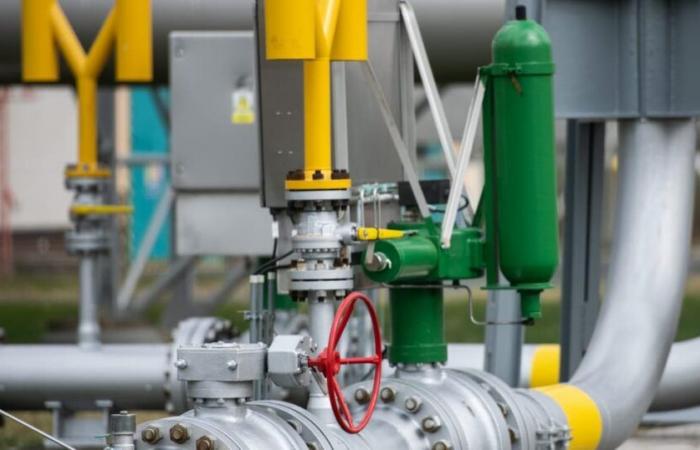
For the Czech Republic, the decision taken by kyiv not to renew an agreement signed recently in 2019 authorizing the transit of Russian gas through its territory and therefore to close the taps of the transnational gas pipeline through which gas from Siberia arrived in Europe, means that it now finds itself without supplies of Russian gas.
However, as in other European countries, with the notable exception of Slovakia in particular, Czech leaders have constantly repeated that the necessary had been done, since the start of the Russian invasion in Ukraine, to that Czechia is able to obtain supplies from other sources in the west via Germany so as to no longer be in any way dependent on imports from Russia.
Michal Kocůrek|Photo: EGÚ Brno
Energy security expert interviewed Thursday by Czech Radio, Michal Kocůrek therefore considers that Ukraine's desire to no longer allow Russian gas to pass through its territory to undermine Moscow's ability to finance the war effort , will not have any major strategic consequences for a country like the Czech Republic and the majority of other European countries:
“This is an important change, of course, but one that should be put into perspective in the context of the events that have occurred since 2022. From my point of view, this stoppage of transit through Ukraine does not modify fundamentally the situation on the market, because the volume of gas from Russia that was imported had become marginal compared to the period before the Russian invasion of Ukraine and before, therefore, 2022.
According to Michal Kocůrek, one of the most affected countries is Slovakia. While the latter, until very recently, could charge significant transit fees when transporting Russian gas to Hungary and Austria in particular, it now finds itself at the very end of the supply chain.
Robert Fico|Photo: Telegram/Skabeeva
This is also the reason why, last Monday, with a view to the end, as of January 1, of transit via Ukraine, the Czech Ministry of Industry and Trade proposed to Slovakia to put its gas transport capacities at its disposal, explaining that the Czech Republic had sufficient infrastructure to supply its neighbor. An outstretched hand that, for the moment, the Slovak government has however refused to accept, its Prime Minister Robert Fico preferring to threaten Ukraine to stop providing it with electricity or to reduce aid to refugees staying in Slovakia.
-Photo: Net4Gas
For Czechia, while last Monday, the operator Net4Gas informed that 95% of gas imported into Czechia at the end of 2024 came from the East, and, therefore, mainly from Russia, the question may however ask yourself why this was so. A question to which Martin Záklasník, former director of the Czech branch of the energy company E.ON and also interviewed by Czech Radio, responded by believing that this was a logical commercial position given the price on the market:
Martin Záklasník|Photo: Kateřina Cibulka, Czech Republic
“This has been happening since November and I think it was a deliberate decision, quite simply because buying Russian gas was cheaper. I am convinced that the Russian company Gazprom wanted to use this as an argument to influence different market players, who could then say: 'See? Russian gas is cheaper and we will have to buy more expensive ones.' This is why almost 100% of the gas that arrived in the Czech Republic in November and December came from Russia. However, if we consider the whole of 2024, the share of non-Russian gas in Czech supplies was around 55%. »
And according to Michal Kocůrek, Ukraine's decision to no longer allow Russian gas to transit to Slovakia through pipelines puts an end to a debate which has caused a lot of talk in the Czech Republic in recent weeks:
“We will stop talking about whether or not we take Russian gas. We will not take any more simply because there will no longer be any surplus Russian gas in Slovakia that Czech traders can buy. »





